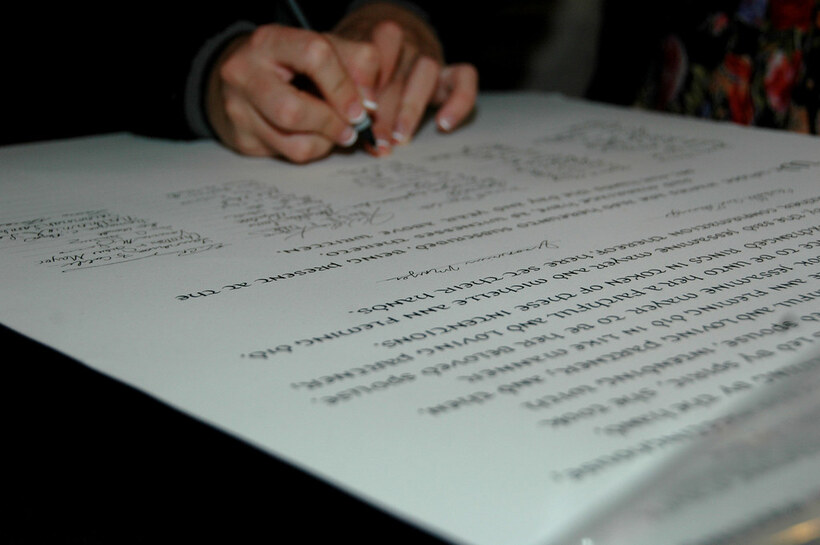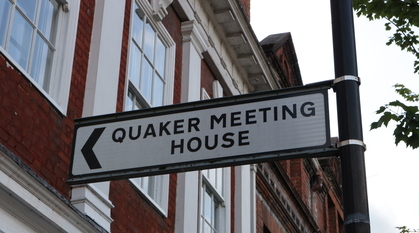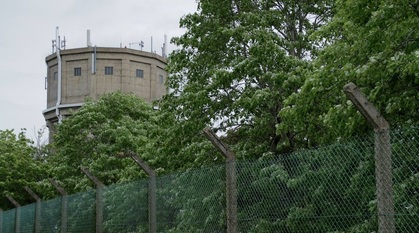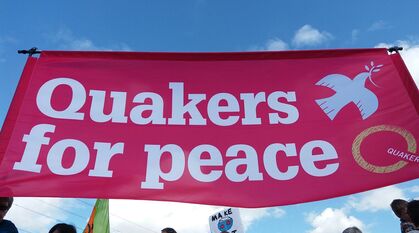Quaker marriage: a history of celebrating a spiritual commitment
Married in the eyes of God or the eyes of the law? Michael Booth looks at the Quaker commitment between two people and God, and its occasionally strained relationship with the law of the land.

The first Quaker marriages in England were not strictly legal, at least according to English law. According to Scottish law, Quaker marriages were considered "irregular" – legal, but not quite the same as a church marriage. In the 1650s, when Quakerism first began, the Anglican church was still the authority in England. People were required to worship in church every Sunday, and it was in the parish church that marriages took place and were officially recorded.
Quakers then, as today, believed that everyone can have a direct, personal relationship with God. They didn't recognise the authority of the parish priest, and so marriage in the church was not an option.
Celebrating in community
They did, however, recognise the sanctity of marriage – and didn't want this joyful commitment to be a secretive or hidden practice. The process was as public as possible. First the local meeting would approve the couple's intentions, and an announcement would be made to the local Quaker community.
Afterwards everyone present as a witness was asked to sign a certificate confirming that the couple were indeed married, and careful records were kept of every Quaker marriage.
Quaker weddings are, like our meetings for worship, based on silence. The couple stand and make formal declarations taking each other as their spouse.
The practice of signing the certificate continues in Quaker weddings to this day. For many couples the certificate is more than just a pleasant memento of the day, but reminds them of the spiritual commitment they have made to each other in front of witnesses. It also links back to the very first Quakers and the risks they took to uphold their new faith and community in an at times hostile environment.
To early Quakers the certificate with the signatures of multiple witnesses also had another, more practical use as any witness might be called to court to confirm that the marriage had taken place. Before national civil records of marriages were kept, Quakers needed to keep their own records of marriages. This was important as unless a marriage could be proved, any children would have been considered illegitimate and unable to inherit.
Changes to marriage law
Eventually there were court cases where the judge upheld that Quaker marriage was valid. It meant that for a time Quaker marriages were legal because of case law, rather than an act of parliament. This all changed in 1753 with the passing of the Marriage Act, which recognised Quaker marriages in England and Wales.
Since then, marriage laws have exempted Quakers and Jews from various aspects of the detailed regulations which apply to others, including not having to use the set wording. Generally Quakers have co-operated with the authorities: Quaker marriages were restricted to members and only from the mid-1800s were non-members with Quaker connections permitted to marry within our meetings.
Specific statutory provision for Quaker marriage in Scotland was given in 1854 and Quaker marriages have been legally seen as 'regular' marriage since 1878.
But there was one particular area where the Quaker attitude to marriage has been ahead of the general religious conventions of the time – and that is our attitude to same-sex marriage.
Affirming same-sex marriage
In 2009, after several decades of steps towards it, British Quakers affirmed that a marriage was a contract between two people and God, not necessarily a woman, a man and God. We became the first religious organisation in Britain to formally recognise same-sex marriage and committed to campaigning to change the law.
Putting this into practice presented a few hurdles. We were clear that we did not want couples having a religious marriage without the benefit of also being in a legally recognised relationship. Same sex couples having a Quaker wedding also needed to have a civil partnership until marriage equality was achieved in 2014. Since then our registering officers have been able to report and record all Quaker marriages in Britain.
Recognising a relationship
Looking back over the nearly 400 years since the first Quaker marriages, there's a clear thread that continues to this day. A Quaker marriage is not just two people standing up in a meeting for worship and making their declarations to each other, but a process that opens up the planned marriage to the love and support of other Friends.
This was a process that emerged from a real concern to demonstrate to the world that two people were married in the eyes of God and that everyone should accept and recognise this relationship – even if at times the law of the land didn't agree.


